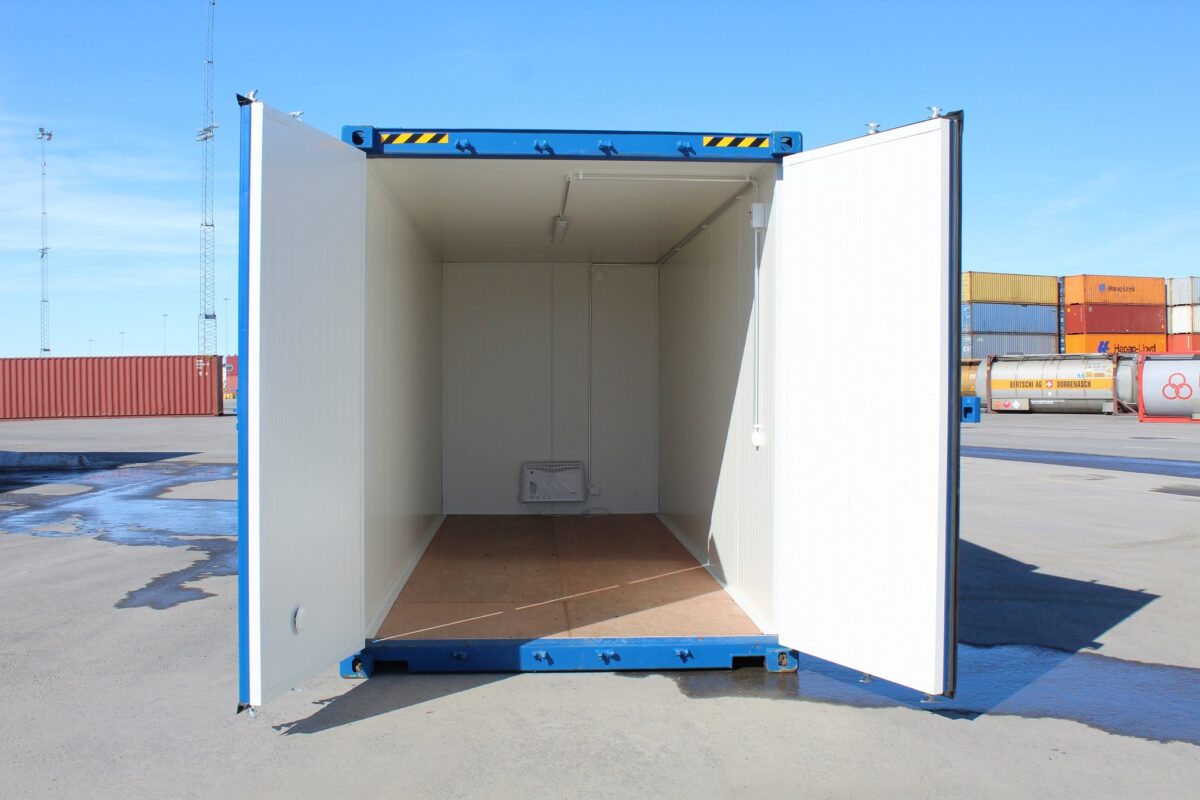Uncategorized
Insulated shipping container

An insulated shipping container is a modified shipping container that has been equippedwith insulation to improve its thermal efficiency. These containers are specifically designe to protect the contents from extreme temperatures, moisture, and condensation during transport and storage. Here is a meta description for insulated shipping containers:
“Ensure the optimal protection of your goods with insulated shipping containers. These modified containers feature enhanced insulation to safeguard your cargo from temperature fluctuations, moisture, and condensation. Whether you’re shipping temperature-sensitive products or need reliable storage in diverse climates, insulated shipping containers offer peace of mind. Discover the benefits of superior thermal efficiency and reliable protection for your valuable goods. Explore a range of insulated shipping containers to meet your specific requirements and ensure the integrity of your cargo. Start shipping and storing with confidence today.”
- Insulation Materials:
- Insulated shipping containers are typically linedwith insulation materials to create a barrier against heat transfer. Common insulation materials used include foam, fiberglass, or rigid panel insulation.
- The insulation is usually installedon the walls, ceiling, and sometimes the floor of the container, depending on the specific design and requirements.
- Thermal Efficiency:
- Insulated shipping containers provide improved thermal efficiency compared to standard containers. The insulation helps to reduce heat gain or loss, maintaining a more stable internal temperature.
- This thermal insulation is particularly beneficial for shipping or storing goods that are sensitive to temperature, such as food, pharmaceuticals, electronics, or other perishable items.
- Moisture and Condensation Control:
- Insulated shipping containers also help mitigate moisture-related issues. The insulation acts as a protective layer, reducing the risk of condensation forming on the container walls.
- Condensation can be problematic, as it can lead to mold, mildew, or damage to the cargo. Insulation helps to minimize these risks by creating a barrier between the temperature inside and outside the container.
specs
- Climate Control Options:
- Insulated shipping containers can be further enhanced with climate control systems, such as HVAC (Heating, Ventilation, and Air Conditioning) units or refrigeration units. These systems provide precise temperature and humidity control for highly sensitive cargo.
- Versatility:
- Insulated shipping containers are not only useful for transporting goods but also serve well as on-site storage solutions. They can beused for refrigerated storage, temperature-controll warehouses, pop-up shops, mobile offices, and more.
- The versatility of insulated shipping containers allows businesses to adapt to various needs and industries, providing reliable and secure storage or workspace in different environments.
- Customization Options:
- Insulated shipping containers can be customizedto meet specific requirements. Additional features such as doors, windows, ventilation systems, lighting, shelving, or security measures can be incorporate basedon individual needs.
When considering an insulated shipping container, it’s important to work with reputable suppliers who specialize in container modifications. They can provide expert advice on insulation materials, climate control options, and any necessary certifications or compliance standards for specific industries or shipping regulations.
Insulated shipping containers offer reliable protection, temperature control, and moisture resistance, making them a valuable solution for transporting and storing sensitive goods in a wide range of industries.

